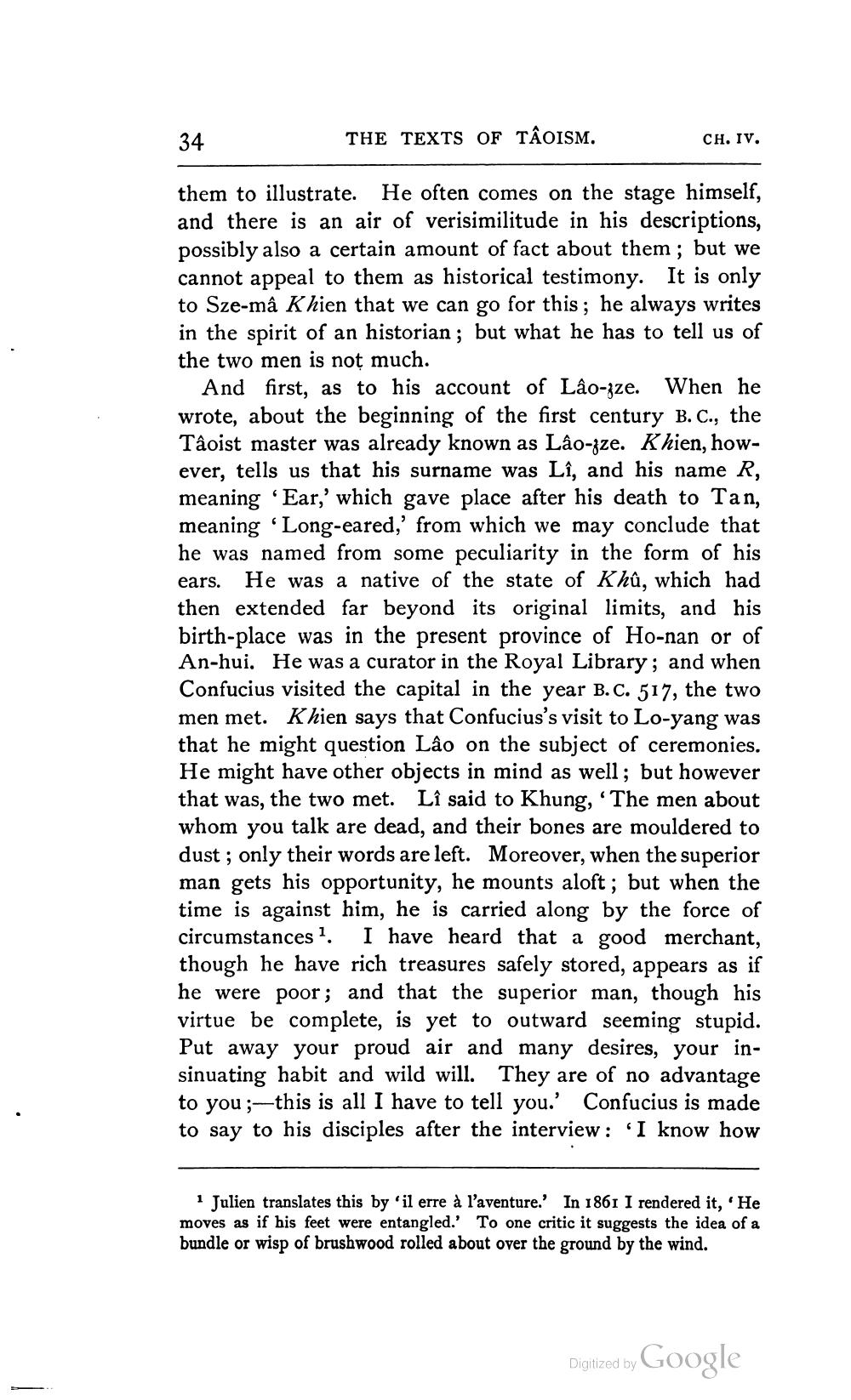________________
34
THE TEXTS OF TÂOISM.
CH. IV.
them to illustrate. He often comes on the stage himself, and there is an air of verisimilitude in his descriptions, possibly also a certain amount of fact about them; but we cannot appeal to them as historical testimony. It is only to Sze-mâ Khien that we can go for this; he always writes in the spirit of an historian ; but what he has to tell us of the two men is not much.
And first, as to his account of Lâo-zze. When he wrote, about the beginning of the first century B.C., the Tâoist master was already known as Lâo-zze. Khien, however, tells us that his surname was Lî, and his name R, meaning 'Ear,' which gave place after his death to Tan, meaning "Long-eared,' from which we may conclude that he was named from some peculiarity in the form of his ears. He was a native of the state of Khû, which had then extended far beyond its original limits, and his birth-place was in the present province of Ho-nan or of An-hui. He was a curator in the Royal Library; and when Confucius visited the capital in the year B.C. 517, the two men met. Khien says that Confucius's visit to Lo-yang was that he might question Lâo on the subject of ceremonies. He might have other objects in mind as well; but however that was, the two met. Lî said to Khung, 'The men about whom you talk are dead, and their bones are mouldered to dust; only their words are left. Moreover, when the superior man gets his opportunity, he mounts aloft; but when the time is against him, he is carried along by the force of circumstances. I have heard that a good merchant, though he have rich treasures safely stored, appears as if he were poor; and that the superior man, though his virtue be complete, is yet to outward seeming stupid. Put away your proud air and many desires, your insinuating habit and wild will. They are of no advantage to you;—this is all I have to tell you.' Confucius is made to say to his disciples after the interview: I know how
1 Julien translates this by 'il erre à l'aventure.' In 1861 I rendered it, 'He moves as if his feet were entangled.' To one critic it suggests the idea of a bundle or wisp of brushwood rolled about over the ground by the wind.
Digitized by Google




